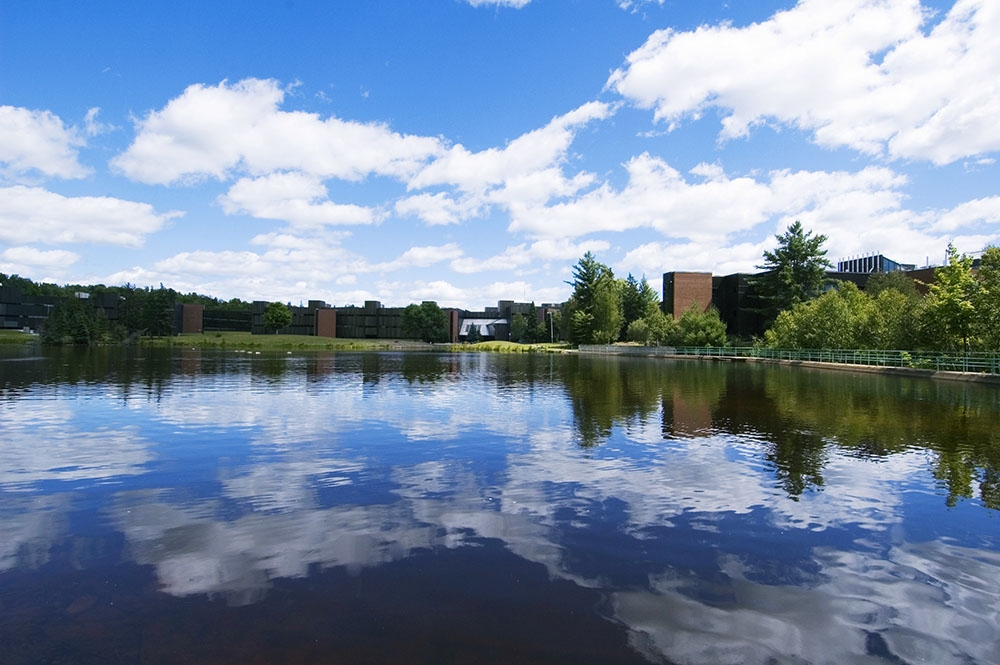The Aboriginal Initiatives Program at Nipissing University provides a supportive environment to Aboriginal students in a welcoming and understanding way, sensitive to their culture.
Thomsen D’Hont
Although many of the students come from Ontario and Quebec, some are from much further away, such as Thomsen D’Hont, a Métis from Yellowknife. D’Hont chose Nipissing partly because the university is flexible. He is a champion cross-country ski racer and for several years took one or two courses a year in different universities while pursuing racing full-time.
“I was hoping to balance skiing and school,” says D’Hont. “Here we have a good varsity ski team and lots of ski trails on campus, and North Bay has a real winter so it’s a good ski season.”
He is studying Liberal Science, which combines science and the humanities, and is not a combination found in many other institutions. “There are broad requirements in both areas. Because Nipissing University has a really flexible program, with lots of accommodation from professors, I could apply credits and prerequisites I already had.” After his degree, he intends to apply to medical school.
Another reason he chose Nipissing was the Aboriginal Initiatives Office. “It’s a great initiative to have a special office devoted to Aboriginal programming. Here, there are a lot of Aboriginal students, lots from northern and rural areas and lots from North Bay itself. It’s a tight-knit program with a strong sense of community. It’s also a great way to get involved in the local Aboriginal community.”
Autumn Varley
Autumn Varley agrees. She transferred from the University of Ottawa where she took the first two years of her undergraduate degree. “There was a lack of cultural support at Ottawa U,” she says. “I didn’t realize I needed that, but after two years there I knew I did.”
She says, “As soon as I walked into the Aboriginal Initiatives Office I felt welcome. The campus here is beautiful, it’s closer to my home (Tiny, Ontario), and the difference in culture is important.” She says the transition from Ottawa to Nipissing was seamless, even though her studies in Ottawa were in French and in Nipissing she works in English. She also enjoys the smaller class sizes. “The professors know you on a personal basis.”
One of her areas of study she considers most important is the intergenerational effects of residential schools. Another is oral history, which has only been considered a primary historical source for the last 15 years. “I would not have had that opportunity at Ottawa U.” She is also keenly interested in researching child welfare and the disproportionate number of Aboriginal children who end up in care. “It’s common for kids to be moved out of a province, and if that happens there’s not a lot of followthrough in the next province,” a trend which concerns her.
Her own grandmother was moved far from her home as a child, so Varley has a deep understanding of outcomes resulting from that kind of interference. She is also passionate about blending what is seen as Aboriginal traditions and culture with institutions of higher learning. “There is a strong need for more Aboriginal voices in scholarly fields.”

